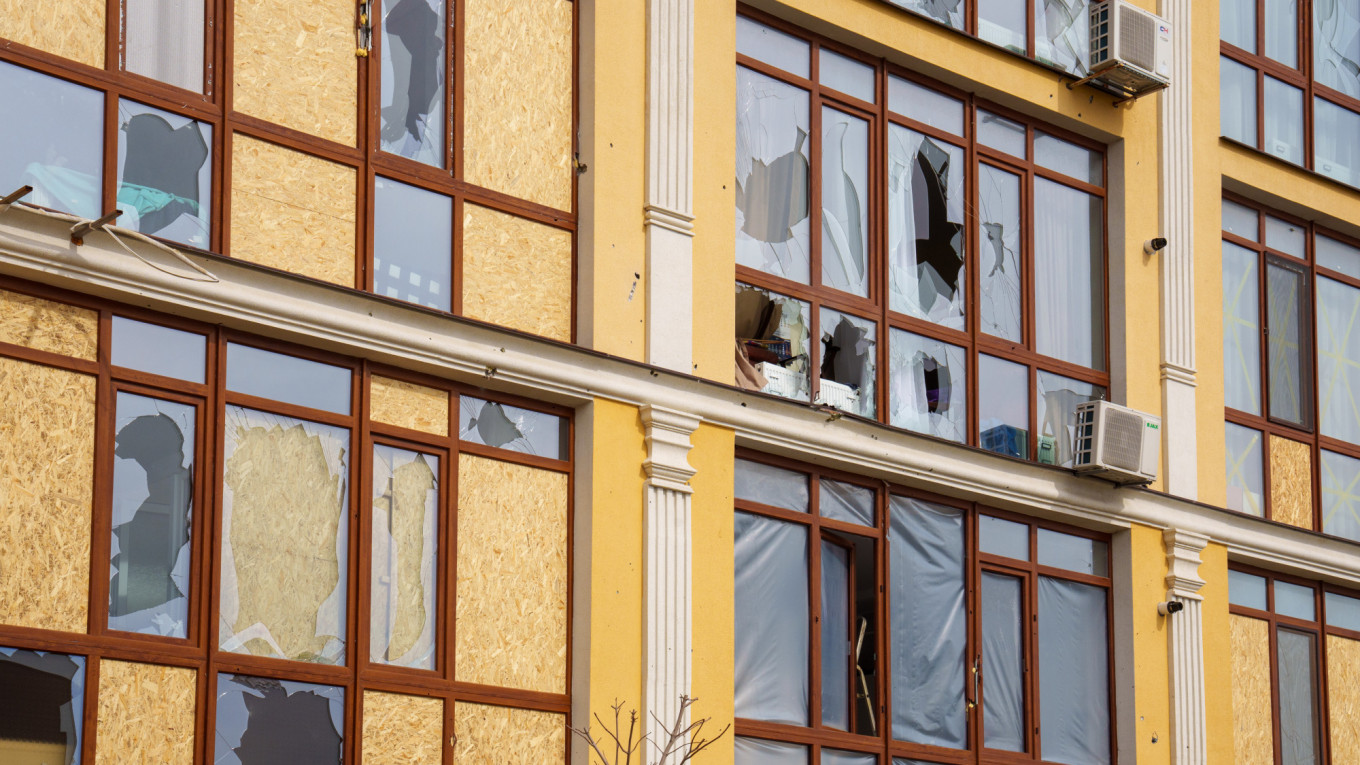Once derided as a Kremlin sympathiser, Odesa's Mayor Gennady Trukhanov likes to collect his thoughts before delving into his feelings about Russia and President Vladimir Putin.
"The Russians are on our soil today and they are bombing our cities, killing our people and our soldiers. Our people are dying," the mayor of the southern Ukrainian port city told AFP.
"It is hard for me to speak of any kind of future friendship or relationship. I can't imagine that," the mayor added, his steel-blue eyes flashing as he rails against Russian air strikes, the Black Sea blockade and the millions of tonnes of grain trapped in his ports.
"Putin destroyed everything," he fumed.
Before the war, the 57-year-old Odesa native carved out a polarising career in Ukraine’s raucous political scene as a one-time member of former president Viktor Yanukovych’s Kremlin-backed party that was overthrown by a popular uprising in 2014.
But even as unrest rattled Ukraine and anti-Russian sentiment surged, Trukhanov continued to rise through the ranks and was elected mayor of Odessa only months after Yanukovych was ousted and violent clashes over the fallout rattled the port city.
But now, with thousands dead and millions displaced in the wake of Russia's invasion, the mayor bristles at the mention of Moscow.
With Russian troops just 120 miles away, Trukhanov oversees the defence of the country's most valuable port amid a suffocating Russian naval blockade that has unleashed economic catastrophe in Ukraine and threatens famine elsewhere if Odessa’s bountiful stocks of grain remain landlocked.
"They are not only destroying our cities and killing our residents, they are also triggering an economic collapse," the mayor said.
- 'Occupiers and invaders' -
The war with Russia has been particularly painful for Odesa, even as the city has avoided the brutal ground fighting ongoing across swathes of eastern and southern Ukraine.
Founded during the reign of Catherine the Great, the city -- with its baroque architecture and sandy beaches -- became emblematic of the glory days of the Russian empire and was later one of the most valuable ports during the Soviet era.
And as Ukraine gained independence, Odesa maintained its deep economic, familial, and cultural ties with Russia along with its own share of accusations in recent years of harbouring pro-Kremlin sympathies.
But the sentiment is changing.
On Friday, a member of Odessa’s city council unveiled a proposal to replace the city’s streets named after Russian cities and historical figures and be given new names honouring US President Joe Biden and British Prime Minister Boris Johnson.
As Trukhanov points out, the centuries of goodwill that once flourished between the cosmopolitan port and Russia is being undercut with every new airstrike.
"With their rockets they think that they are spreading panic and fear among the residents of Odesa," Trukhanov said.
"In fact, they raise the degree of hatred of Odesa residents toward the occupiers and invaders even higher."
- 'It's a crime' -
In between meetings on Friday, Trukhanov careened through Odesa's grinding traffic in his black Range Rover to visit the scene of a recent air strike, where he sought to reassure residents.
Hands clasped, Trukhanov nodded as locals from the area peppered the mayor with a slew of questions about rebuilding efforts and potential reimbursements.
"It's a crime," said resident Igor Shpagin, 55, while surveying the four-storey hole a Russian strike punched through his apartment building during the Orthodox Easter weekend last month.
"What can we do, this is a war between politicians," added retired police officer Groza Alexander, whose family survived the attack.
The timings of certain strikes have been particularly galling for Odesa residents.
On May 9 amid the festivities to celebrate the victory over Nazi Germany in Moscow, Putin laid flowers in front of a monument honouring the Soviet Union's "hero cities", including Odesa.
Hours later, a barrage of Russian missiles rained down on Odesa.
"What do you expect from someone who bombs children? People are dying every day here," said Alexandra Kaseyenko, a 29-year-old Odesa resident. "It's shocking for a lot of people. We used to be brothers."
Trukhanov shares the dismay at the staggering turn of events.
Russians and Ukrainians together helped defeat Nazi Germany during World War II, the mayor explained.
"No one could have imagined that in 2022 our people -- Ukrainian refugees -- would be hiding in Germany from Russian missiles," he said.
A Message from The Moscow Times:
Dear readers,
We are facing unprecedented challenges. Russia's Prosecutor General's Office has designated The Moscow Times as an "undesirable" organization, criminalizing our work and putting our staff at risk of prosecution. This follows our earlier unjust labeling as a "foreign agent."
These actions are direct attempts to silence independent journalism in Russia. The authorities claim our work "discredits the decisions of the Russian leadership." We see things differently: we strive to provide accurate, unbiased reporting on Russia.
We, the journalists of The Moscow Times, refuse to be silenced. But to continue our work, we need your help.
Your support, no matter how small, makes a world of difference. If you can, please support us monthly starting from just $2. It's quick to set up, and every contribution makes a significant impact.
By supporting The Moscow Times, you're defending open, independent journalism in the face of repression. Thank you for standing with us.
Remind me later.






